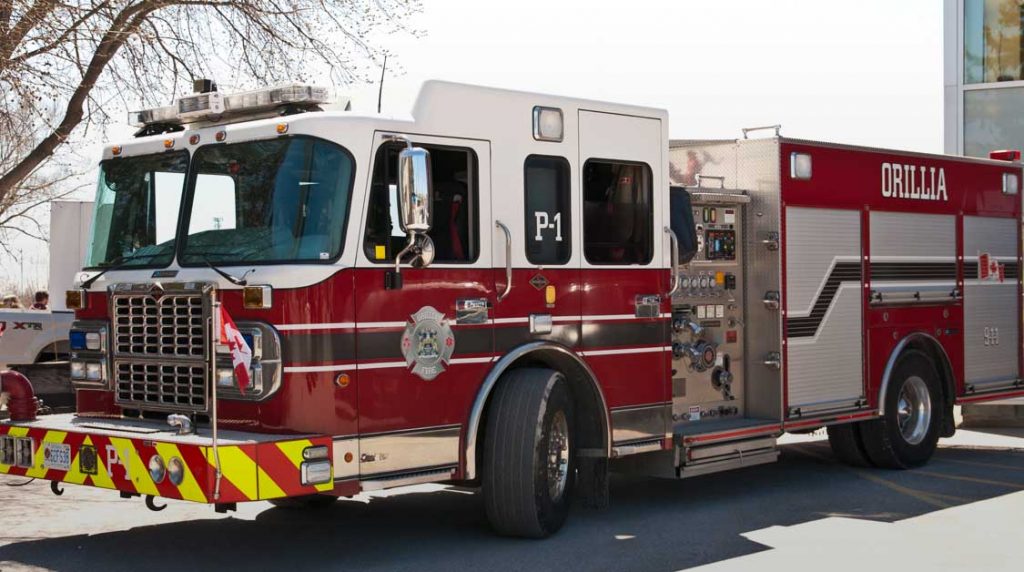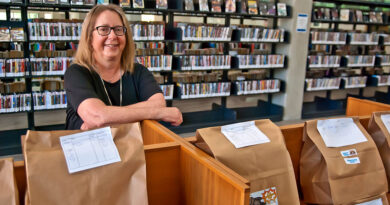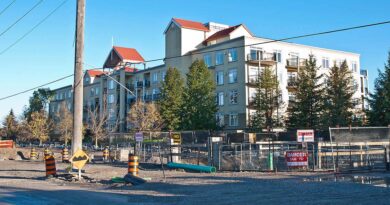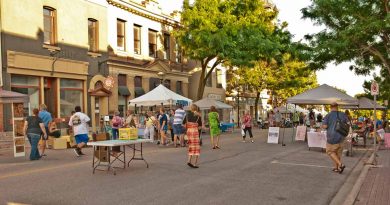2024 Operating Budget Preview
By John Swartz
Orillia council gets into the 2024 budget in earnest Tuesday, November 5, with a 9 a.m. meeting.
The morning is scheduled to go over the budgets submitted by most of the City’s boards, agencies and committees which get some or all of their funding from the City.
Representatives from some committees – physician recruitment, accessibility advisory, heritage, awards, waste management, Information Orillia, Downtown Orillia, the Child And Youth Advocacy Centre, Sustainable Orillia, the Orillia Museum of Art and History and the Lighthouse – will be in attendance if councillors have questions, but are not scheduled to make presentations.
Representatives from Simcoe County, the health unit, library and the Police Services Board will make presentations.
This is different from historical practice when every committee and board would make a presentation, which took a lot of time, because on the whole, the questions councillors had often did not have an effect on whether those budgets were accepted as presented.
The other four however, have traditionally generated the most discussion, and at times resulted in changes to those budgets before council would approve any expenditure.
The county is asking for a 25% increase for paramedic service, 18% for housing, 2.68% for Ontario Works and 4.62% for long-term care. The children’s service part of their budget request is down almost 1%. Taken together, the county wants 11.63% more from the City than it got last year, pushing the total over the $8 million benchmark to $8,440,264.
Those numbers are subject to change because the county still has to approve a 2024 budget, so Orillia council generally is in a position to accept and approve the concept of any changes to what is paid to the County, but the final amount usually is not set until spring and is generally in the ball park of what is being discussed this week.
The Simcoe Muskoka District Health Unit is asking for a 5% increase amounting to $25,000 to bring their mandatory request to $513,891. CITY staff attribute the increase as being 3% because of inflation for the SMDHU’s costs, and 2% because of growth (i.e. providing services to more people). Again, the amounts may change because the SMDHU budget won’t be set until later.
The Orillia Public Library budget request to the City is only going up $57,266. They do have some capital requests to replace computers (more than 10 years old) and a microfiche reader that is years beyond its best before date, and isn’t working. Replacing the computers Is positioned as a 5 year program which spreads the $45,000 annual cost of the same period.
One of the items the library board highlighted in their year end report is how effective it has been since the City decided last year to hire a community outreach worker. The move was precipitated by an increasing level of incidences at the library. The board is reporting there has been a 63% reduction in the number of incidences, a 76% reduction in the number of trespasses issued and a 60% reduction in calls to police.
The police services board budget is increasing by $4,730 entirely because of wage increases. The detachment budget falls under the board, but is presented as a separate item. The proposed 2024 OPP operating budget pushes the total expense over $9 million. The increase for 2024 is 6%, that percentage translates to $527,519.
A third component to the police services submission is the cost of crossing guards, that budget is going up by 1.9% to $129,089.
Later That Day
The plan is to conclude discussions about boards, agencies and committees budget in the morning, and in the afternoon to get into the operating budget overall. This will take two days, as scheduled. On occasion it has taken longer, and sometimes less time.
In broad terms the operating budget proposed increase is for a 1.97% increase. Details of what that means were outlined in the previous budget story you can find here. If you ask each councillor, they will likely tell you their goal is to end up with an increase below that proposed by staff – even if it’s only .01% less, and going beyond the proposed increase will not happen. There have been a few councils who wish the latter was the case, but on the whole council does undershoot.
There are 12 separate reports on issues that will affect the final outcome.
Money In
The first report is about the Municipal Accommodation Tax. It’s basically informing council of how much was collected and where the money went, but it also has two other considerations attached. One is to move the grants program budget under the MAT purview, instead of from general operating.
There are two reasons. Currently the $32,00 budget comes from the tax levy, but with the change the money would come from what MAT collects. The MAT contributes revenue to the City rather than taking money from the operating budget, so the tax levy goes down accordingly. The other part of the motion in the report is to review the program regarding application time frames, if the fund value should be changed and who gets to share in the fund.
The latter should be of prime interest to cultural groups, for which the fund was created and intended. Staff want to investigate if sports should be included, diluting the purpose of setting up the grants program in the first place.
The tax as a percentage of accommodation occupancy revenue was noticeably lower during the summer than in 2022. The last quarter results are not included, but 2023 winter and fall hotel occupancy revenue was above 2022. If the average of three quarters holds for the last quarter, total tax collected will be almost on target of $500,000.
Net revenue for the tax is split 50/50 with Orillia and Lake Country Tourism. Revenue from 2022 was used to fund a redesign of Swanmore Hall and an extensive marketing plan. The report also asks council to change the split of the City’s take (40% to reserves) to a 20% reserve contribution in order to absorb the grants program costs.
The budget for 2024 includes a $50,000 increase in revenue projections because the MAT will apply to short-term rentals, which were not part of the equation previously.
Cut Your Lawn
At the request of council staff have some changes to the Clean and Clear by-law which come with a cost. The change is to enforce the by-law from a complaint basis to going out and looking for violations.
The cost will add $17,941 to the department’s budget for an officer to be employed during the growing season. This officer’s time will also be charged against the cost of enforcing the new short-term rental by-law. The focus of proactive enforcement will be on properties identified as having problems, rather than nitpicking on all properties.
Catching A Ride
A motion by councillors Campbell and Czetwerzuk resulted in the next report regarding Orillia Transit. They wanted a number of changes implemented (a new teen pass, reduce seniors fares to $2, create some free transit days, change the Laclie route, implement a book on demand system for OWLS and investigate an on demand component to the system in general.

None of the changes have been implemented and staff are looking for direction from council how to proceed. All the changes will affect revenue, but with the intent to increase ridership.
An accompanying report outlines the cost of passes for seniors and students, plus free days would increase the budget by $38,000. It also states the cost of on demand service for OWLS would be $60,000.
Blue Box Changes
The cost of collecting blue box contents for industrial, commercial and institutional properties is $400,000 annually. The City did collect offsetting funds for the entire blue box program, but this is changing in 2024 and those properties will not factor into how much the City gets.
Those properties now get to put out up to 8 large containers each week. Staff has found that there’s a lot of stuff in those boxes that shouldn’t be and it costs more to sort out that stuff. And now the City won’t be reimbursed for collecting from those properties anyway.
Staff are proposing 3 changes ranging from allowing only 2 blue carts per week, to eliminating collection all together. In addition the City would start charging $125 per cart, instead of providing them for free.
This doesn’t mean they will take recyclables as garbage; those property owners will have to arrange for private pick up. Staff estimate this will save $143,000 annually on the waste collection budget.
Bag ‘M ‘N Tag ‘M
Staffs are proposing the garbage tag program be changed to a full user pay system. The cost to supply property owners with 20 tags a year is $97,100, which will come off the annual budget.
Staff say switching to clear garbage bags has reduced how much is picked up by 40% and reduced the amount of tags sold by 23,000 tags. Recycling box contents have risen dramatically. Furthermore, the price of tags will go up to $15 for 5 tags.
Property owners will get tags, for a while, but the number of tags will reduce to 15 in 2024, and by 5 tags every two years until 2030 when no tags will be provided. Staff estimate 235,000 tags would be sold annually with full user pay garbage collection.
Street Renaming
Councillor Czetwerzuk. Asked for details about changing Centennial Drive to Lightfoot Drive. The budget report is necessary because there is a $1,000 cost for new street signs, and an un-enumerated cost for staff to change a range of things like by-laws, 911 information maps and mapping services, and etc.
Downtown Tomorrow
The Downtown Tomorrow Community Improvement Plan was scheduled to last ten years – to 2026. The reserve account has a $1.6 million balance. Staff say that’s enough to allow council to end the $200,000 annual contribution to the reserve and still provide grants for the remainder of the program.
Yeah, We Can Do That
A request for Lakehead University to be granted money for a Summer Institute on Economic Security and Local Resilience conference next July was referred to budget. The report comes with a recommendation from staff to receive– which means do nothing. The reason is any financial contribution can be handled from the Municipal Accommodation Tax revenues and does need to be a specific budget approval, and therefore an addition to the tax levy. The university asked for $9,000.
Fender Benders Will Cost More, But Not on Your Tax Bill
The Orillia Fire Department is proposing Orillia residents who have collisions requiring the fire department respond be billed for the expense. Currently only non-residents get billed. The department said 96% of collisions involve residents and recovering the cost of responding would reduce the department budget by $90,000.
The total amount of recovery bills is about $120,000 annually, of which the City collects from insurers about 75% of the costs.
Having a Fire Will Cost More Too

The department responds to about 14 fires every year of which costs can be recovered from insurers. They do not currently bill. By doing so, they expect to generate $60,000 annually, and therefore reduce the budget and tax levy by that amount.
Things That Go Boom
The City, and by extension the fire department, does not charge for inspections and safety checks for fireworks and pyrotechnic events; most of the time involved is overtime for the officers concerned. There is no estimate provided for costs to date, and expected revenue and budget savings. This likely because it may be the case no such events take place next year, or any year.
Storm Water Rates
Do you know the City has 80 km of storm water sewers and 200 km of ditches? The long term plan is to divert storm water into the waste water treatment system instead of venting untreated stormwater directly into the lakes.
Currently most property owners pay the same rate based on an average of lot size and actual lot overage (which effects how much rain drains naturally into the ground). The rate paid does not represent the full cost of the system.
The City has $6 million of reserve funds for storm water projects which are currently budgeted in road construction projects. But, planned projects will leave a $2.8 million shortfall in 2024. Staff are proposing a base rate of $127.75 annually for low density residential properties. The current base rate is $102.20. This applies to all residences. Other types of properties will pay higher amounts according to how much of the property facilitates runoff (i.e. paving).
The budget meeting takes place at the Opera House and is open to the public. It can also be watched on the City’s Youtube channel. Wednesday, November 8ths meeting is at this link.
(Photos by Swartz – SUNonline/Orillia)




